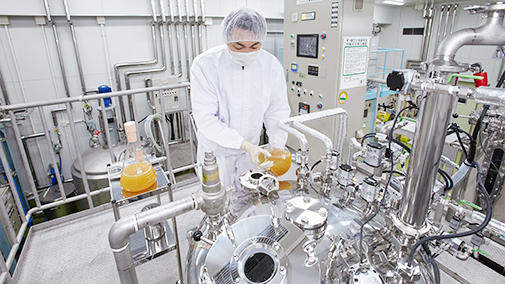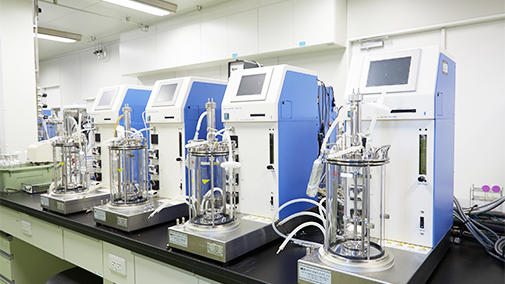Microbiological Research Department
Collecting, Supplying, and Elucidating the Physiological Functions of Microorganisms and Biological Samples
The Microbiological Research Department engages in the production and cultivation of seed strains for manufacturing,
as well as the development of fermentation technologies.
Additionally, we collect bioresources—including microorganisms—
and perform functional analyses while systematically organizing and enriching related information.
Through this process, we convert the insights gained into usable resources,
thereby providing new bioresources and data that can be applied to product development.
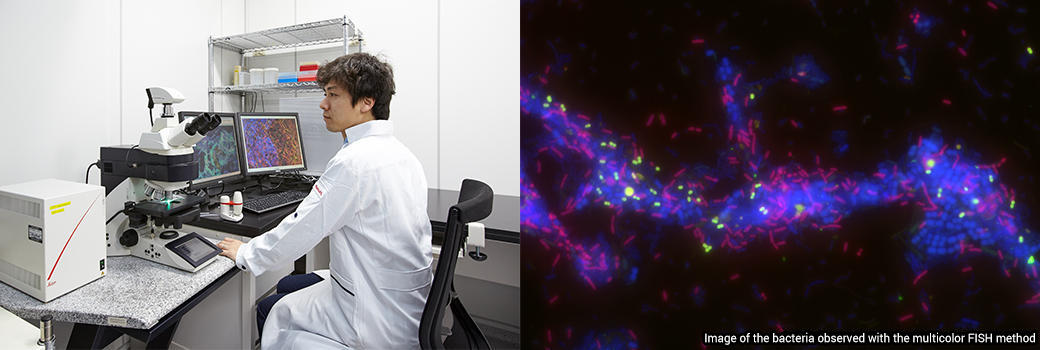
Research areas
- Collection, preservation, and management of bioresources
- Studies on function elucidation and nutrition of useful microorganisms
- Development of fermentation technologies and exploration of useful substances
- Collection and utilization of the genetic information of microorganisms and their physiological effects on hosts
- Development and support of large-scale cultivation technologies for beneficial microorganisms
Yakult's Products are Born from a Massive Library of Microbes
Yakult's meticulous techniques -- honed through years of working closely with microorganisms, including the isolation of hard-to-culture strains -- and the tireless efforts of our predecessors, have laid the foundation for an extensive microorganism library that cannot be replicated overnight. One of the key roles of the Microbiological Research Department is to search through this library and discover next-generation probiotics and connect them to product development. This microorganism library serves as the foundation supporting Yakult's proprietary research and development.
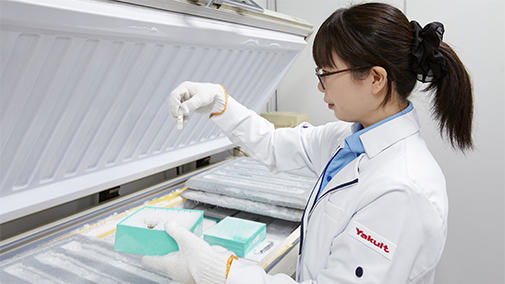
Supporting the Development of High Quality and Highly Functional Products at their Foundation
The Microbiological Research Department manages strains of microbes including L. paracasei strain Shirota* and provides seed cultures for plants inside and outside Japan. Without the supply of safe, high quality seed cultures, we cannot maintain the slogan we have for our products: "quality that never changes anywhere." In addition, the Microbiological Research Department utilizes original fermentation technology to not only improve quality and functionality, but also to make products more delicious.
*This bacterium was previously classified as Lactobacillus casei strain Shirota
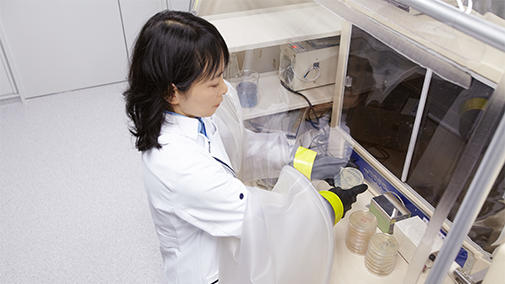
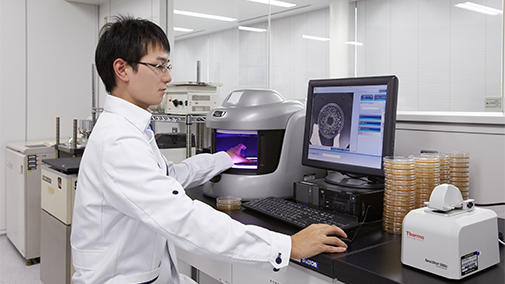
Clarification of New Physiology in Probiotics
This department also explores the characteristics of our probiotics, including L. paracasei strain Shirota, from a microbiological perspective, and uses the latest technology to analyze the mechanisms related to their growth and survival. Many of these aspects remain unclear, such as the nutrients probiotics utilize during proliferation and the unique cell structures that are involved in helping them reach the intestines alive. By clarifying the physiological functions of probiotics, the Microbiological Research Department continuously pursues our company's core themes, including improving cultivation processes in manufacturing and understanding the effects on the human body when consumed.
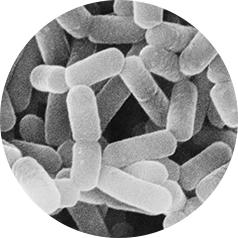
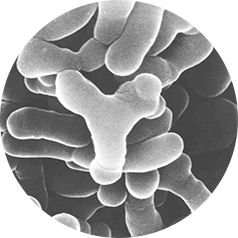
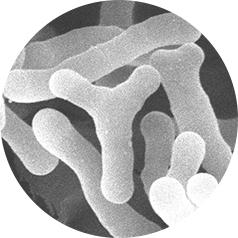
Development of Cultivation Technologies for Probiotics
To consistently provide food products containing probiotics to our customers, it is essential to develop large-scale cultivation technologies for microorganisms. In order to utilize promising microorganisms -- identified from our proprietary library -- as food ingredients, we are developing cultivation and other biotechnological techniques. By conducting not only basic research but also applied research focused on manufacturing, we aim to determine the optimal conditions for stable microbial growth and enhanced health benefits, ultimately ensuring the reliable supply of food products that contribute to customer health.
